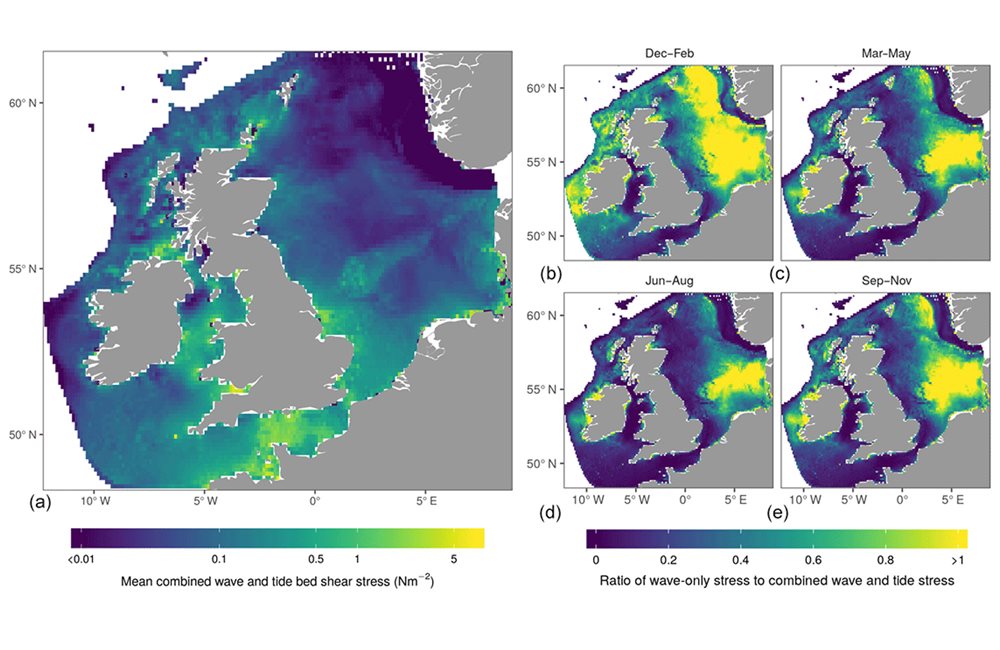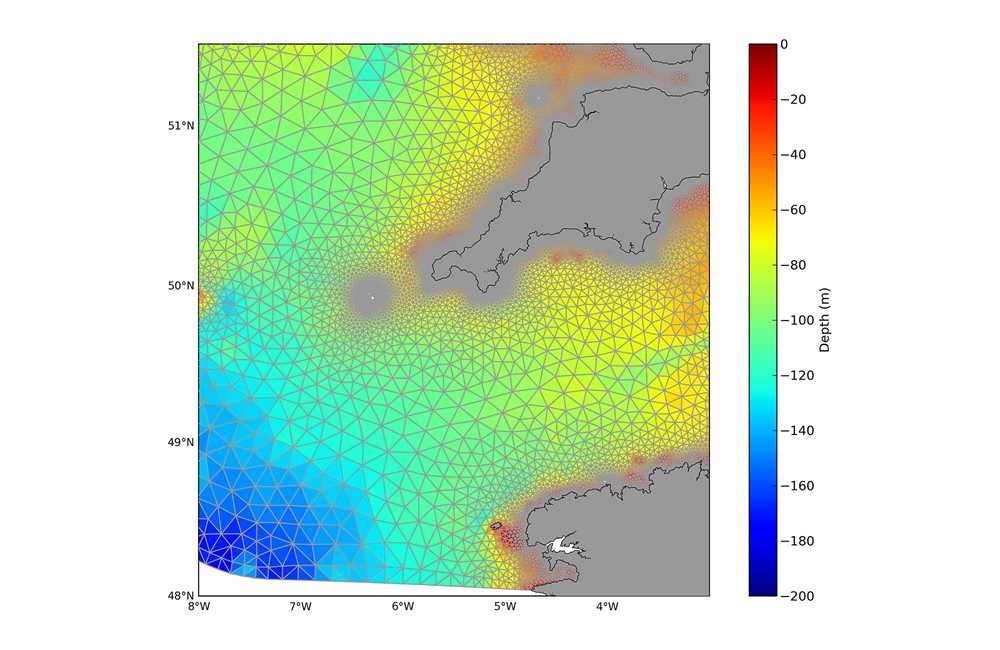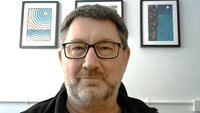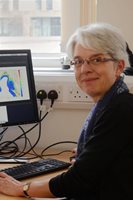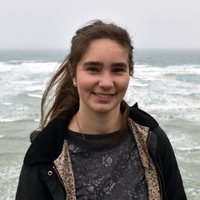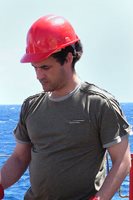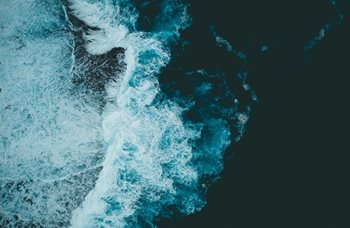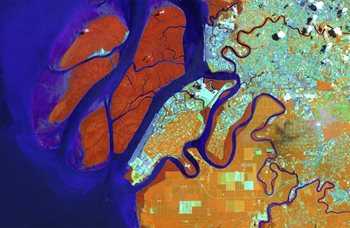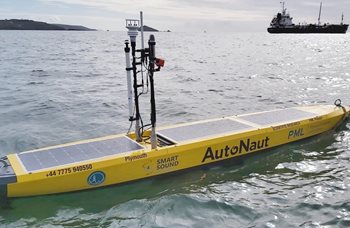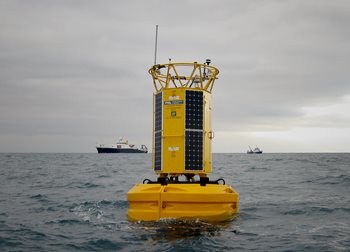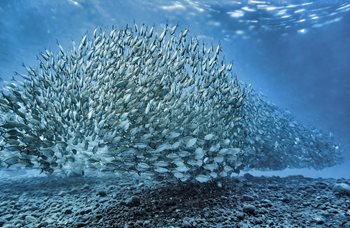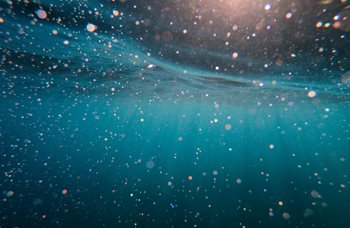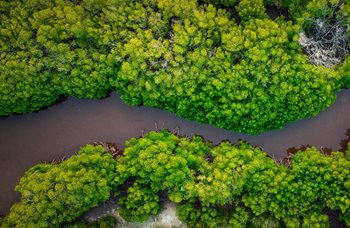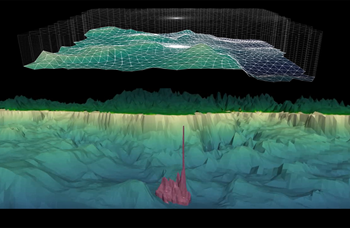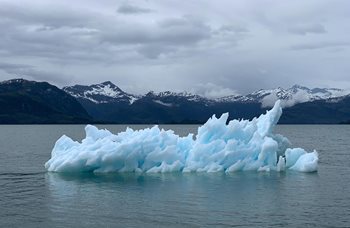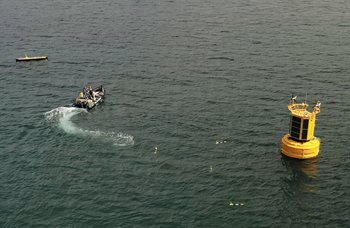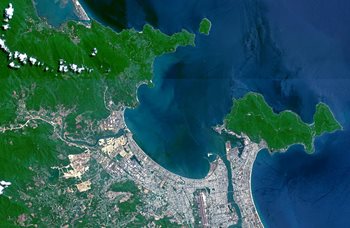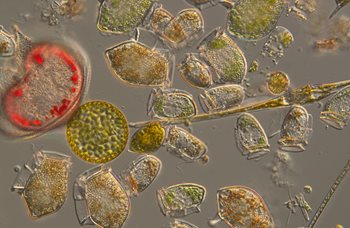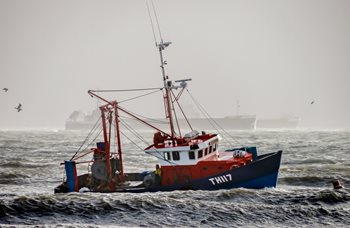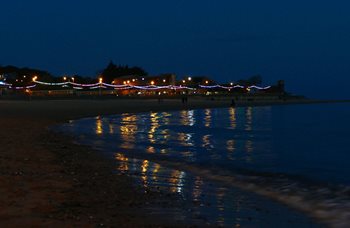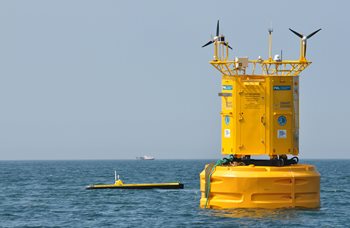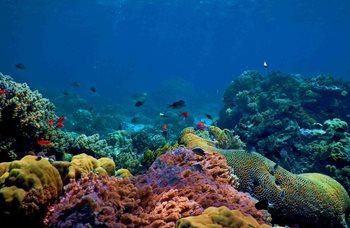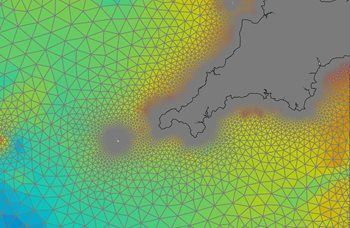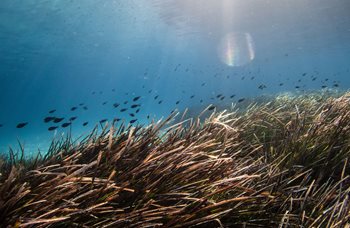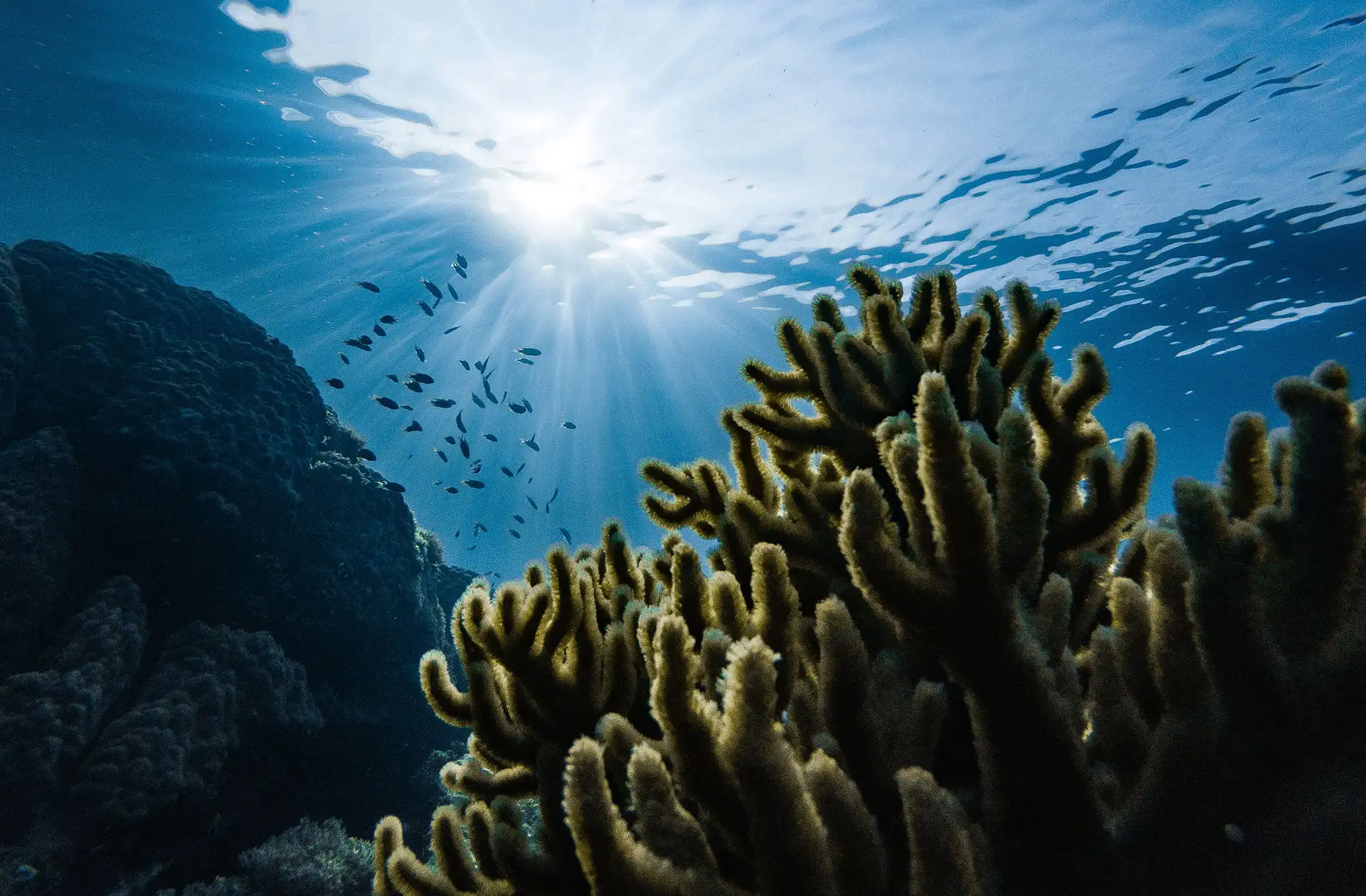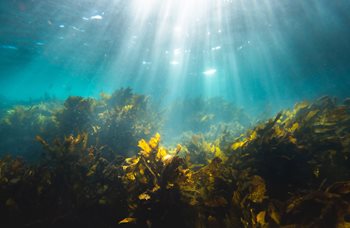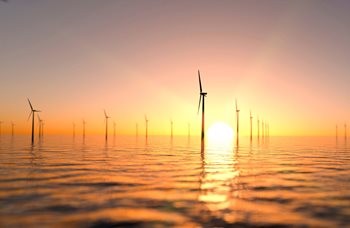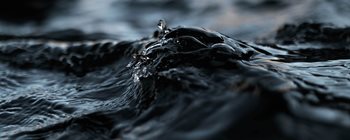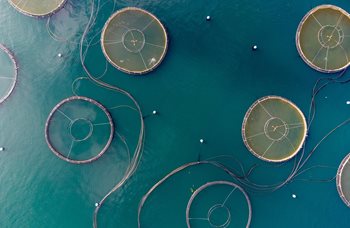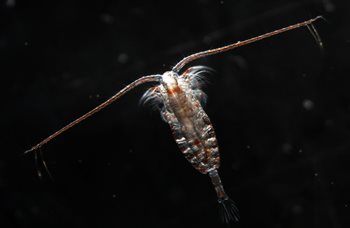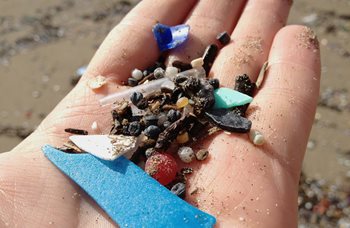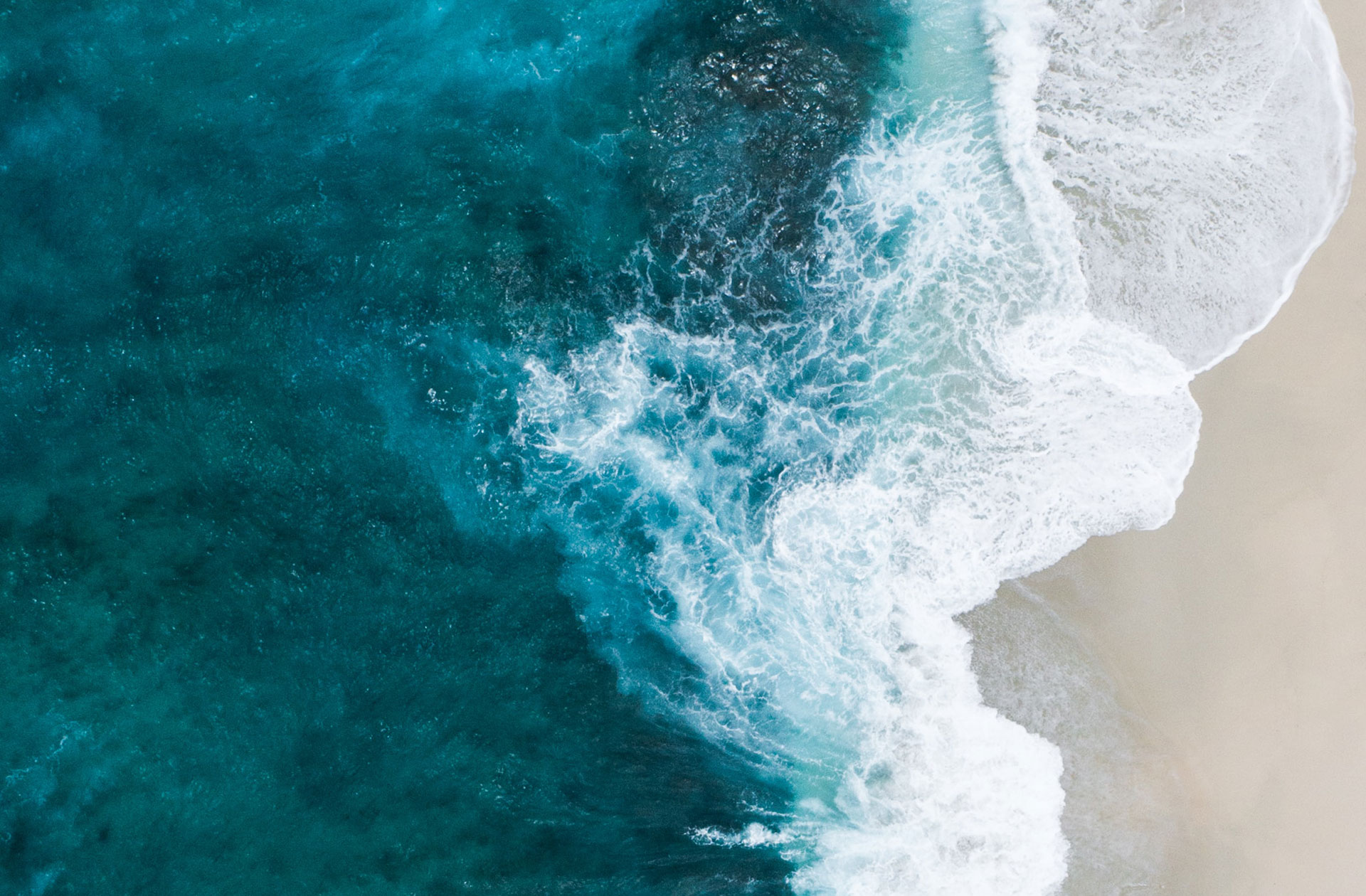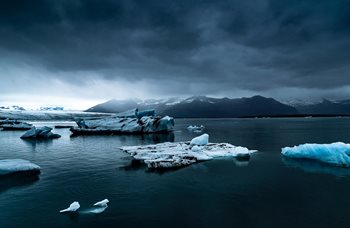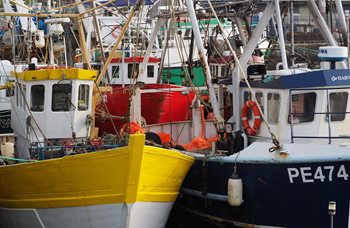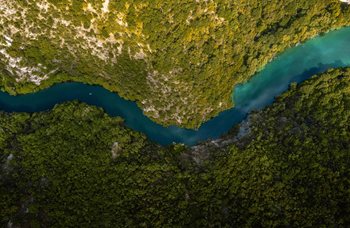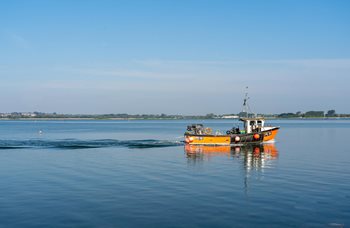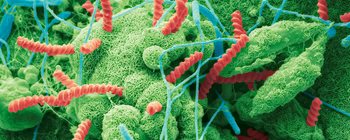Science Group
Marine Systems Modelling
Our mission is to promote greater fundamental understanding of marine systems by developing and applying state-of-the-art computational models. These models simulate marine system functioning and its response to local and global pressures. We use this understanding to promote sustainable use of marine ecosystems, addressing many of the UN sustainable development goals and contributing to IPCC reporting.
Increasingly society requires predictions of how our oceans and coastal seas will be transformed by global (e.g. climate change) and local (e.g. pollution) pressures and how these may impact the resources the ocean provides. Reaching informed management solutions to predicted problems is also essential. These questions demand analysis of interactions and feedbacks within complex systems that occur over many different spatial and temporal scales. Only state-of-the-art numerical models can deliver such information.
We take a “systems” approach, integrating oceanography, marine physics, chemistry, biology, and ecology across the water column, sediments and land and atmospheric interfaces. We integrate models with data from laboratory experiments, in situ and remotely sensed marine observations to test hypotheses, validate simulations, sustain monitoring, and improve forecasts. Our whole systems approach provides an unrivalled ability to understand the marine system and improve predictions of change in the ocean state, ecological functioning, and ecosystem services.
Our work includes: scaling climate pressures to regional and local issues; assessing viability and impacts of aquaculture and fisheries; assessing the function and impact of Marine Protected Areas; supporting sustainable development of the blue economy and associated policies; assessing the fate and impact of micro-plastics, pathogens and other pollutants; predicting ecological status (e.g. deoxygenation, eutrophication, acidification); assessing the impact of climate change, the global ocean carbon cycle (blue carbon); researching climate change mitigation techniques and their consequences for marine systems, including renewables and carbon capture and storage.
In collaboration with the UK Met Office, the UK National Partnership for Ocean Prediction (NPOP) and the UK National Centre for Earth Observations (NCEO) we work to keep UK marine modelling a world-leading national capability.
Much of our work is customer facing, in particular working closely with industry and government departments (BEIS, Defra) in the fields of carbon capture and storage, nuisance species such as Harmful Algal Blooms (“red-tides”) and aquaculture & fisheries. We are leading partners in international science networks, including OceanPredict, International Council for the Exploration of the Sea (ICES) working groups, the North East Atlantic hub of the global Ocean Acidification Observing Network, OSPAR Intersessional Correspondence Group on Ocean Acidification, and Advances in Marine Ecosystem Modelling Research.
PML Project pages
-
Act on Offshore Monitoring (ACTOM)
-
Changing Arctic Carbon cycle in the cOastal Ocean Near-shore (CACOON)
-
Combining Autonomous observations and Models for Predicting and Understanding Shelf seas
-
COMFORT. Our common future ocean in the Earth system - quantifying coupled cycles of carbon, oxygen, and nutrients for determining and achieving safe operating spaces with respect to tipping points
-
Detection and Attribution of Regional greenhouse gas Emissions in the UK
-
DREAMS - Decommissioning - Relative Effects of Alternative Management Strategies
-
ERSEM (European Regional Seas Ecosystem Model)
-
FOCUS: Future States of the global Coastal ocean: Understanding for Solutions
-
GCRF Blue Communities
-
Microbial carbon pump in a changing ocean: building models for the future
-
Mission Atlantic
-
MOET - Managing the Environmental Sustainability of the Offshore Energy Transition
-
MyCOAST
-
Optical data modelling and assimilation (OPTIMA)
-
Pressure control and conformance management for safe and efficient CO2 storage - accelerating CCS technologies
-
Resolving Climate Impacts on shelf and CoastaL sea Ecosystems (ReCICLE)
-
SEAMLESS: Services based on Ecosystem data AssiMiLation: Essential Science and Solutions (SEAMLESS)
-
SOLSTICE-WIO: Sustainable Oceans, Livelihoods and food Security Through Increased Capacity in Ecosystem research in the Western Indian Ocean
-
South Asian Nitrogen Hub
-
Strategies for Environmental Monitoring of Marine Carbon Capture and Storage (STEMM-CCS)
-
TerraFIRMA: Future Impacts, Risks and Mitigation Actions in a changing Earth system
-
The Economics of Marine Plastic Pollution: What are the Benefits of International Cooperation
-
TYRE-LOSS: Lost at Sea - where are all the tyre particles?
-
UK Earth System Modelling (UKESM)
Other projects
LTSM UKESM 21/22H2020 SEAMLESS
CLASS - Modelling 21/22
NOWMAPS 2
MISSION ATLANTIC - Towards the Sustainable Develo
SANH - Phase A -South Asia Nitrogen Hub
CAMPUS - Combining Autonomous
NCEO (SA5) DA 2020-2021
ACTOM - Act on Offshore Monitoring
COMFORT - Our common future ocean -
H2020 - IMMERSE
MCP
SOLSTICE
Blue Communities
DARE - Detection and Attribution…
Resources and Links
Accessing our codes
Some of the codes we develop, including ERSEM are open source and can be obtained via Zenodo: https://doi.org/10.5281/zenodo.4075315
Model results
Some model simulation data for both hindcasts and climate forecasts can be found here:
https://portal.ecosystem-modelling.pml.ac.uk/
Operational model data
We are part of the consortium that supplies operational models of the North West European Shelf, the data can be accessed here: https://marine.copernicus.eu/
We also lead an operational forecast system of the Plymouth Marine region covering the new National Marine Park area: https://plymouthmarineforecasts.org/
Advances in Marine Ecosystem Modelling Research (AMEMR)
Every three years we run a dedicated conference for international marine ecosystem modellers that serves as a community hub for sharing and developing ideas and networks:
https://www.amemr.com/
Capabilities
- Flexible modelling suite - We have developed a flexible and inter-operable suite of hydrodynamic and ecosystem models which can be used to design models of appropriate complexity to address a range of scientific and practical questions, comprising physics to fish, local to global, and hindcast to climate scale forecast.
- Biogeochemical and Ecosystem Modelling (ERSEM) - We develop ERSEM as an open source resource. ERSEM is a unique model in that it contains multiple plankton types, a fully resolved benthic system, the microbial loop, multi-nutrient variable stoichiometry and the carbonate system. ERSEM is modular and interfaced with the Framework for Aquatic Biogeochemical Modelling (FABM), enabling ready configuration to support different complexities and scenarios as necessary and can be coupled with many different hydrodynamic frameworks that allow us to (potentially) simulate every marine ecosystem on earth, from coastal to global.
- Climate projections - We use our models to project the future evolution of marine systems under changing climate scenarios to understand the extent of changes to water temperature, ocean acidification, (de)oxygenation and nutrient availability, how these may impact ecosystems and society.
- Aquaculture - PML has developed a specialist shellfish aquaculture model (ShellSim) which enables the projection of culture yields for several commonly farmed species. When coupled with hydrodynamic and ecosystem models we can assess sustainability and carrying capacity for individual farms or regions.
- Fisheries and charismatic species - We develop and or operate a range of models that describe specific species such as seagrasses, jellyfish and fisheries. Coupling these with our hydrodynamic-ecosystem models allows us to forecast productivity, ranges and nuisance occurrence.
- High resolution modelling - Based on the FVCOM model system which allows for variable resolution across the model domain we are able to apply physical-ecosystem models that explore highly localised processes and interactions, whilst not omitting regional dynamics.
- Pollution, pathogen and particle tracking - Based primarily on the high-resolution models we have developed PyLag, an offline particle tracking model that can be used to track the dispersal of a range of particles in the marine system including plastics and pathogens.
- Offshore energy - We into, apply our models to predict the behaviour of hypothetical leakage and derive strategies to appropriately monitor Carbon Capture and Storage (CCS) sites. Other research investigates the impact of renewable energy infrastructure on the marine environment. Further we develop predictive tools to help keep power station coolant water intakes free of biofouling.
- Operational modelling and data assimilation - PML leads biogeochemical data assimilation for marine ecology, within national (UK NPOP) and international (OceanPredict) networks .As part of a consortium we supply the operational simulations of the North West European shelf and ourselves deliver operational simulations of the Plymouth region.
Latest publications
- Saboya, E; Manning, AJ; Levy, P; Stanley, KM; Pitts, J; Young, D; Say, D; Grant, A; Arnold, T; Rennick, C; Tomlinson, SJ; Carnell, EJ; Artioli, Y; Stavart, A; Spain, TG; O’Doherty, S; Rigby, M; Ganesan, AL; 2024. Combining Top‐Down and Bottom‐Up Approaches to Evaluate Recent Trends and Seasonal Patterns in UK N2O Emissions . Journal of Geophysical Research: Atmospheres.
- de Mora, L; Galli, G; Artioli, Y; Broszeit, S; Garrard, SL; Baum, D; Weber, S; Blackford, JC; 2024. Impacts of Climate Change on the Ascension Island Marine Protected Area and Its Ecosystem Services . Journal of Geophysical Research: Biogeosciences.
- Banerjee, DS; Skákala, J; 2024. Improved understanding of eutrophication trends, indicators and problem areas using machine learning . Improved understanding of eutrophication trends, indicators and problem areas using machine learning.
- Chawner, H; Saboya, E; Adcock, KE; Arnold, T; Artioli, Y; Dylag, C; Forster, GL; Ganesan, A; Graven, H; Lessin, G; Levy, P; Luijkx, IT; Manning, A; Pickers, PA; Rennick, C; Rödenbeck, C; Rigby, M; 2024. Atmospheric oxygen as a tracer for fossil fuel carbon dioxide: a sensitivity study in the UK . Atmospheric Chemistry and Physics.
- Higgs, I; Skákala, J; Bannister, R; Carrassi, A; Ciavatta, Stefano; 2024. Investigating ecosystem connections in the shelf sea environment using complex networks . Biogeosciences.
- Talbot, E; Jontila, J-B S; Gonzales, BJ; Dolorosa, RG; Jose, ED; Sajorne, R; Sailley, SF; Kay, S; Queiros, AM; 2024. Incorporating climate-readiness into fisheries management strategies . Science of The Total Environment.
- Powley, HR; Polimene, L; Torres, R; Al Azhar, M; Bell, VA; Cooper, D; Holt, JT; Wakelin, S; Artioli, Y; 2023. Modelling terrigenous DOC across the north west European Shelf: Fate of riverine input and impact on air-sea CO2 fluxes . Science of The Total Environment.
- Renshaw, R; Bresnan, E; Kay, S; McEwan, R; Miller, PI; Tett, P; 2023. Unusual coccolithophore blooms in Scottish waters . State of the Planet.
- Wilson, RJ; Artioli, Y; 2023. nctoolkit: A Python package for netCDF analysis and post-processing . Journal of Open Source Software.
- Mangano, MC; Corbari, L; Giacoletti et al, A; Berlino, M; Kay, S; Ciraolo, G; Sara, G; 2023. Planning precision aquaculture activities in a changing and crowded sea . Aquaculture.
People who work in this area of research
Dr Yuri Artioli
Marine Ecosystem Modeller
yuti@pml.ac.uk
Dr Muchamad Al Azhar
Ocean Modeller
maz@pml.ac.uk
Deep S. Banerjee
Modelling Scientist
dba@pml.ac.uk
Professor Jerry Blackford
Head of Science: Marine Systems Modelling
jcb@pml.ac.uk
Dr James Clark
Marine Ecosystem Modeller
jcl@pml.ac.uk
Dr Lee de Mora
Marine Ecosystem Modeller
ledm@pml.ac.uk
Dr Marius Dewar
Modeller
made@pml.ac.uk
Professor Kevin Flynn
Plankton ecophysiology modeller
kjf@pml.ac.uk
Dr Molly James
Marine Ecosystems Modeller
moja@pml.ac.uk
Dr Susan Kay
Numerical Modeller
suka@pml.ac.uk
Dr Gennadi Lessin
Marine System Modeller
gle@pml.ac.uk
Dr Yaru Li
Modeller
yli@pml.ac.uk
Dr Rebecca Millington
Regional-Global Biogeochemical Modelling Scientist
rmi@pml.ac.uk
Francesco Pallottino
PhD Student
fpa@pml.ac.uk
Dr Dale Partridge
Modeller
dapa@pml.ac.uk
Dr Helen Powley
Modeller
hpo@pml.ac.uk
Dr Sevrine Sailley
Ecosystem modeller
sesa@pml.ac.uk
Dr Jozef Skakala
Ecosystem modeller
jos@pml.ac.uk
Dr Ricardo Torres
Systems Modeller Data Assimilation
rito@pml.ac.uk
Michael Wathen
Research Software Engineer
miwa@pml.ac.uk
Dr Robert Wilson
Ecosystem Modeller
rwi@pml.ac.uk
